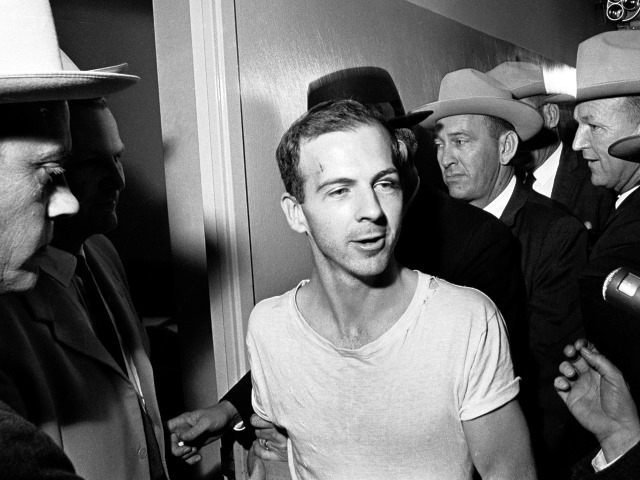The trove of Kennedy assassination documents released by the federal government on Thursday includes a memorandum indicating communication between Lee Harvey Oswald and prominent members of the Communist Party of the United States of America (CPUSA).
The November 26, 1963, memo notes a letter from Oswald to Elizabeth Gurley Flynn, an Industrial Workers of the World activist and founder of the American Civil Liberties Union who served a prison stint in the 1950s for violating the Smith Act with nearly two dozen other Communists. Flynn, a familiar figure to anyone familiar with the history of the American Left, died in the Soviet Union 10 months after the assassination.
The meeting between FBI agents and Gus Hall, longtime leader of the CPUSA, and two of his lieutenants, Arnold Jonson, convicted in 1953 along with Flynn of violating the Smith Act, and Irving Potash, who, like Oswald once emigrated to live in a Communist nation, took place in room 707 of the famed Chelsea Hotel, a New York City haunt favored by Mark Twain, Brendan Behan, Jack Kerouac, and other authors and where Sid Vicious killed his girlfriend Nancy Spungen fifteen years after Oswald killed the president.
At the Chelsea, the brash leaders exhibited fear in the wake of the murder of the president of the United States by one of their fellow Communists.
The memo notes of Johnson and Potash that “both were in an excited state” upon arriving at the meeting. “Hall stated he would not visit CPUSA headquarters this present week for ‘security reasons,’” the document reveals. “He stated further that he felt there will be an ultra right attack against the [Communist Party] in view of the alleged involvement of Lee Harvey Oswald with the Fair Play for Cuba Committee.”
The correspondence between the assassin and the prominent American Communists rose to a level well beyond fan mail.
“Dallas, Texas, PD, had leaked the fact that among Oswald’s personal effects were some letters on CPUSA stationary dealing with how he should proceed in his activities in the [Fair Play for Cuba Committee] and as the informant stated ‘how to handle with noisy neighbors,’” the memo chronicling the meeting three days after the assassination pointed out. “According to the informant, it was apparent that Johnson had not revealed the fact that he had corresponded with Oswald. He then told Hall that there were three letters from Oswald that he had answered.”
The word “noisy” may have been a typo meant as “nosy” and the larger phrase seems to indicate some coded communication.
The proof of coordination and communication between the CPUSA and Oswald, even on matters unrelated to the assassination, shows a type of connection between the party and the assassin not demonstrated before. The reasons for the document’s sealed status for 54 years remains unclear. Though the memo highlights facts inconvenient for the CPUSA, it appears to compromise no sources and hold no government secrets.

COMMENTS
Please let us know if you're having issues with commenting.